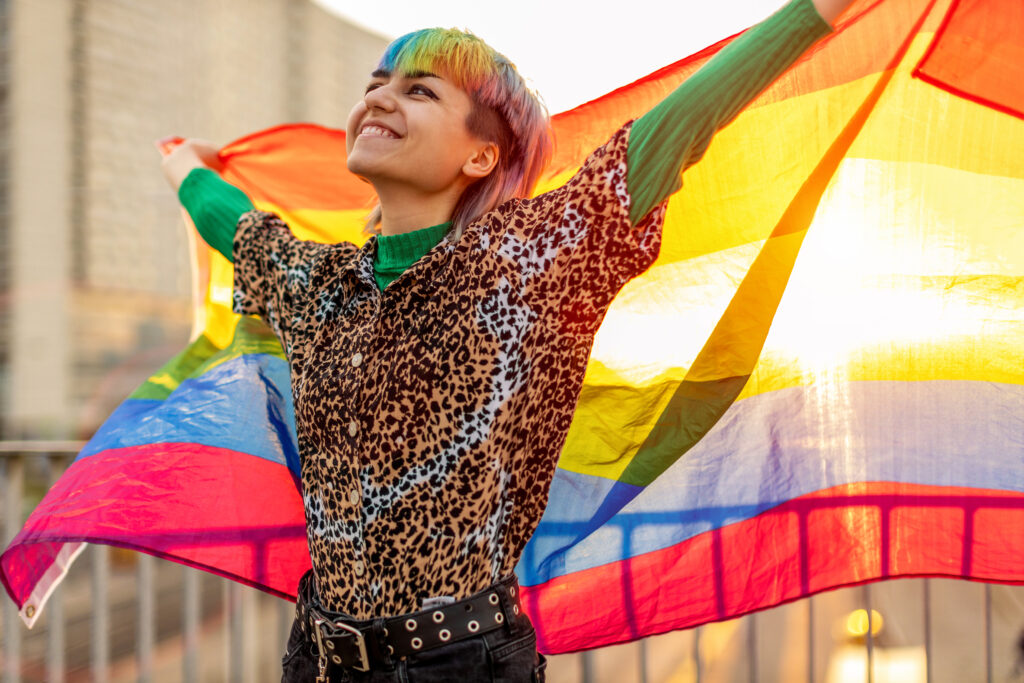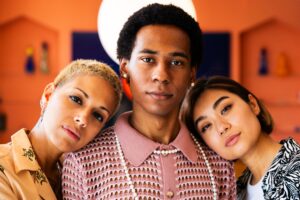Observed annually on October 11, National Coming Out Day is one of the most important events on the LGBTQ calendar. It encourages people to live openly, while also raising awareness about the ongoing challenges the community faces.
This article explores the history of National Coming Out Day, offers celebration ideas, and highlights its role in shaping conversations around identity and acceptance.
What Is National Coming Out Day?
Observed annually on October 11, National Coming Out Day (NCOD), is an LGBTQ awareness day. Its purpose is twofold: to support individuals in coming out and to highlight the ongoing work needed for LGBTQ people to live safely, happily, and openly in society.
NCOD was founded on the principle that silence perpetuates homophobia and shame. As such, coming out is both an act of self-affirmation and a form of activism. When people reveal their true selves, they make a statement about their rightful place in society — and by extension, the place of all LGBTQ people.
History of National Coming Out Day
National Coming Out Day (NCOD) was first observed on October 11, 1988, marking the
first anniversary of the National March on Washington for Lesbian and Gay Rights. Jean O’Leary, a lesbian political leader, and Dr. Robert Eichberg, a gay psychologist, founded the event.
The organizers believed homophobia thrived on silence and ignorance. To combat this, they encouraged LGBTQ people to come out, reasoning that people are less likely to discriminate against a community that includes their loved ones.
NCOD rapidly expanded from its initial celebration in 1988. By 1990, it was observed in all 50 states and seven countries. In 1993, NCOD merged with the Human Rights Campaign, which later established the National Coming Out Project to provide resources for LGBTQ people and their allies.
Since its inception, NCOD has witnessed significant advancements in LGBTQ rights, including nationwide marriage equality and increased legal protections. Given these changes, some now question the need for the event.
Critics argue that it normalizes heterosexuality by implying LGBTQ people need to ‘announce’ their identity. Others see it as a painful reminder for those unable to come out due to oppressive laws, familial expectations, or religious constraints.
How Is National Coming Out Day Celebrated?
In the United States, the Human Rights Campaign organizes NCOD by providing resources for LGBTQ people and their allies that promote awareness and encourage living openly and authentically.
Coming Out Day is also observed in Australia, Canada, New Zealand, Ireland, Switzerland, the Netherlands, the United Kingdom, and Portugal.
What began as a day of activism has evolved into more of a celebration, as coming out in many Western countries is now less risky than in the past. Some people still use the day to come out, while those who are already out may show their support by wearing rainbow flags.
Here are some ideas for celebrating:
- Celebrate Openness: Honor those who have come out by supporting their courage and authenticity.
- Share Stories: Inspire others by sharing your coming-out story on social media or in person.
- Advocate for LGBTQ Rights: Support organizations and initiatives that fight for LGBTQ equality.
- Attend Awareness Events: Participate in or host community events, workshops, or discussions that promote LGBTQ awareness.
- Offer Support: Be an ally to those considering coming out or those who have recently done so.
To connect with others participating online, use these hashtags:
#ComingOutDay
#LoveIsLove
#Pride
#LGBTQ+
#Acceptance
#EqualityForAll
#SupportLGBTQ
LGBTQ Affirmative Treatment at La Fuente Hollywood Treatment Center
As we celebrate National Coming Out Day, it’s important to recognize the unique challenges LGBTQ people face, including higher rates of substance abuse. La Fuente Hollywood Treatment Center, one of the nation’s longest-standing LGBTQ-specialized facilities, meets these needs with expertise and compassion.
At La Fuente, we go beyond traditional recovery methods. Through personalized therapy, group sessions, and ongoing alumni support, we create a sense of belonging — vital for those navigating recovery and LGBTQ identity. Our goal is not just sobriety, but empowering individuals to embrace their authentic selves.
In the spirit of National Coming Out Day, we celebrate every step our clients take toward self-acceptance and openness, recognizing that recovery and coming out are parallel journeys.




